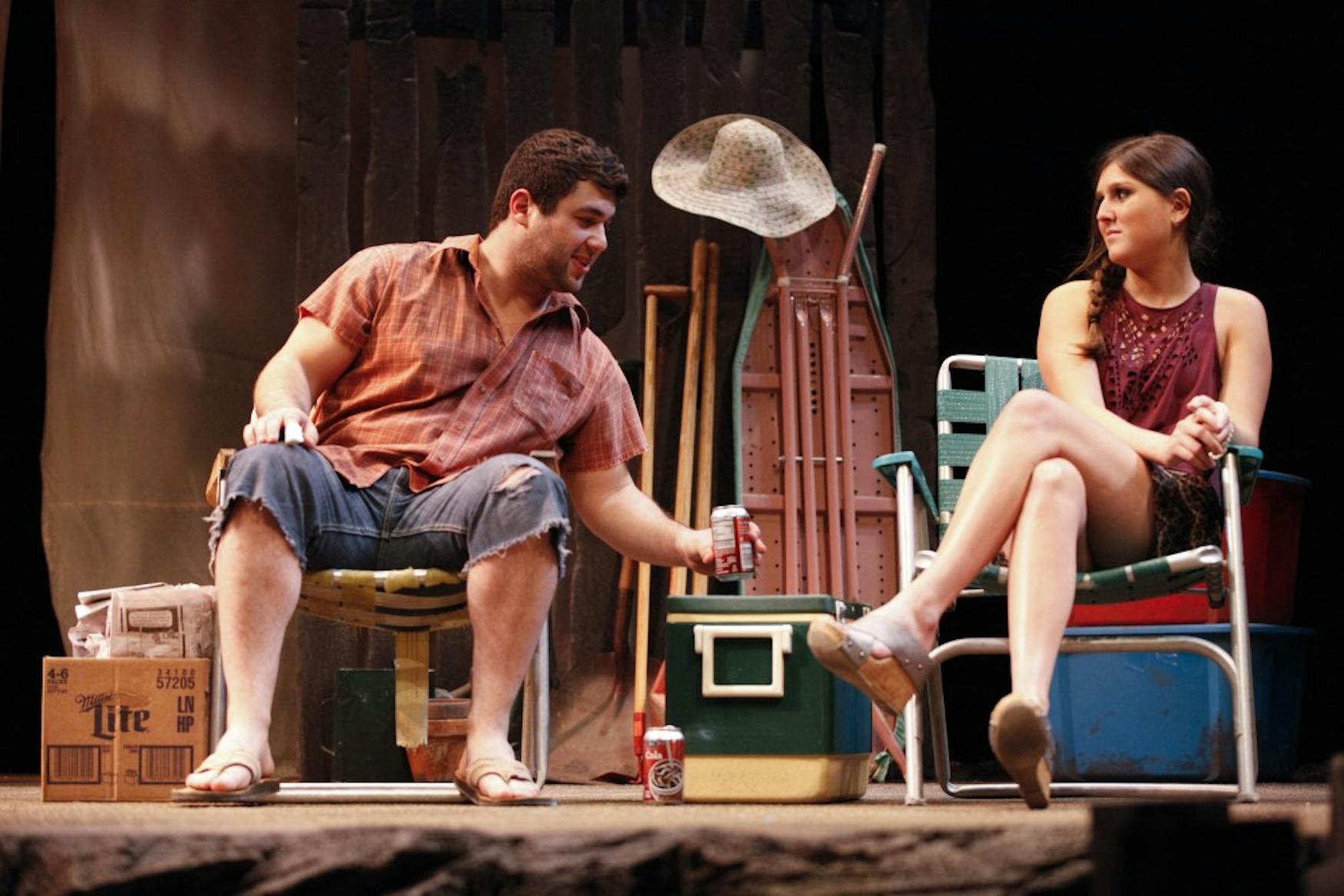‘Way of Water’ shows life after oil spill
How has the 2010 BP oil spill affected the lives of those living near it? While the media no longer gives attention to the spill, the effects of the disaster are still being felt by the environment and the people that it touched. The Way of Water, produced by the Brandeis Theater Company, tells the story of two couples whose lives are irrevocably intertwined as a result of the tragedy.
Off-Broadway Theater Award winning playwright Caridad Svich visited Brandeis for the run of her show and gave a talkback moderated by director Robert Walsh after the Saturday night performance. Svich spoke of the writing process, her personal ties to the story and the driving inspiration that led her to create this play. “This is the largest environmental disaster in our history, and it surprised me that it seemed like our stages weren’t telling this story. They certainly weren’t telling the story of the poor people who were living off the land and living off the water,” she explained.
The production brought the heat and humidity of the deep South to Laurie Theater in Spingold Theater Center.
The show opened on the two men of the show, Jimmy (Meir Alelov ’15) and Yuki (Siddharth Mehra ’17), wearing the characteristic wardrobe of fishermen, including raggedy t-shirts, cutoff jeans and rubber boots, and fishing on a dock. Jimmy and Yuki bantered about life, with Yuki’s lines serving as the more comedic moments of the show.
As they looked past their fishing rods and out into the open water facing the audience, there was an immediate sense of weariness and sheer desperation.
Jimmy and Yuki represented the thousands of people for whom the impact of the spill on their lives was unpublicized. The oil spill was devastating not only for marine life but also for the fishing industry.
Sitting on the dock, Jimmy and Yuki were irritated and anxious because they depended on fishing for their livelihood. Even more, they were angry because they felt as if the world had forgotten them. They felt that since they were poor, nobody cared about their wellbeing, and there was nothing they could do about it. Jimmy and Yuki discussed ongoing protests related to the spill, such as one for a teenager who died from swimming in water with a chemical that had been added to help clean the oil contamination. While Yuki and his wife Neva (Jacquelyn Drozdow ’15) became eager to participate in the protests, Jimmy remained doubtful that the world would listen.
Jimmy was a obstinate man who became more infuriating in his stubbornness as the show went on. However, Jimmy’s attitude was understandable. He refused to see a doctor for severe symptoms possibly caused by the spill because of the expense and because he didn’t trust the health care system.
He refused to change his way of life because it was all he knew and it was the way that his ancestors had lived their lives. Still, in several moments, I wanted to scream at Jimmy, “Listen to your wife!” Jimmy’s wife Rosalie (Jamie Semel ’17) played the voice of reason. Semel did a convincing job of portraying a woman trying to do her best under bad circumstances.
Jimmy and Rosalie were barely scraping by, as seen by several strained conversations about money, work, their mortgage and off-brand soda.
By the end of the play, their economic situation worsened due to the spill’s effects on their livelihood. These effects were so severe that, with only five dollars to their name, the couple lost their house with only plans to live in a car. The sparse space, filled with empty milk-crates comprised the backyard of Jimmy and Rosalie’s house as the other main setting of the story.
The set adeptly managed to combine two very different locations into one—the fishing dock sprouted out from the front of the backyard. Other technical aspects of the performance were also done skillfully. The sound effects were understated so that every sound included had a purpose. For example, when Jimmy went into one of his shaking fits, an electronic twanging sound let the audience know something was off.
In many of the scenes, the dialogue flowed so easily that it felt like listening to a spontaneous conversation rather than something rehearsed.
Although some of the scenes were lengthy, especially those with only two characters, the dynamic among the actors held the audience’s attention. The four actors’ Southern accents sounded natural rather than strained and forced, a factor that made everything seem more realistic.
Everything about the show felt very real, from the accents, costumes and props to the characters’ relationships. The performance evoked a sense of sympathy for these people whose lives were strongly affected by the disaster.



Please note All comments are eligible for publication in The Justice.